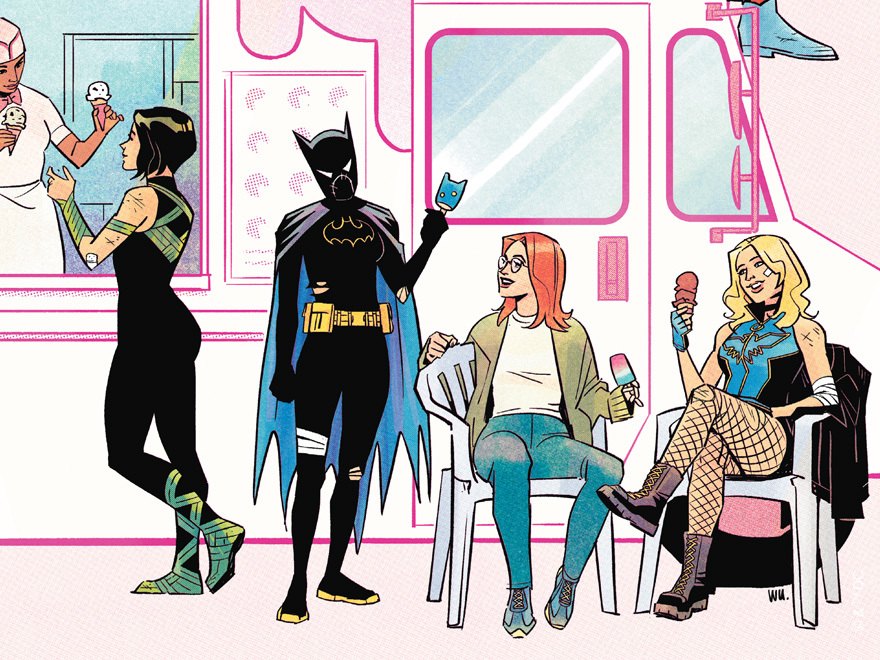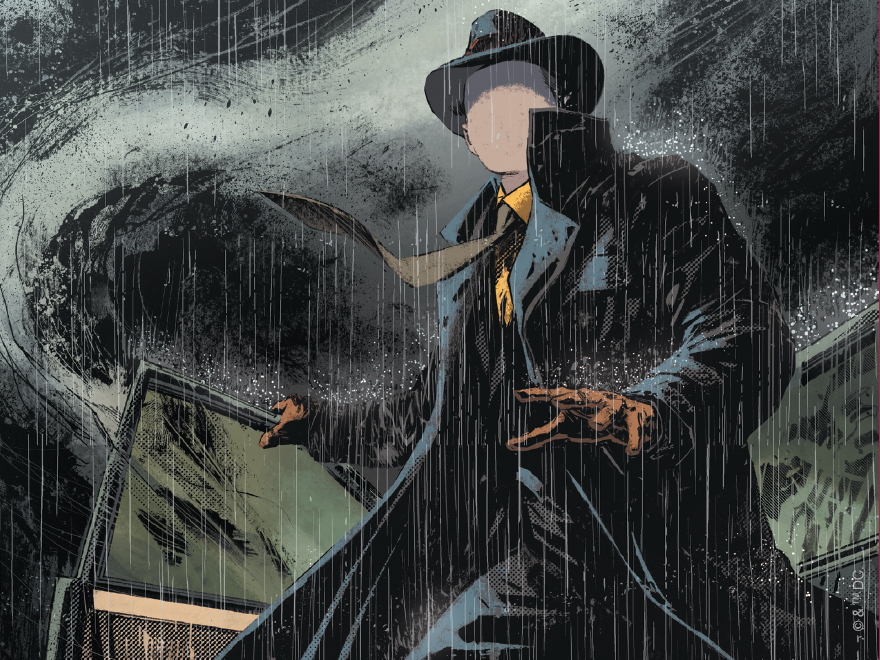When you think of the Flash, what’s the first thing that comes to mind? It’s probably the super speed, right? That’s why he’s “The Flash.”
But that’s something every Flash has in common. Jay Garrick, Wally West, Avery Ho—all of them have the running thing down. So, what is it that sets Barry Allen—the star of the new Flash film—apart from the pack? Is he the fastest? The smartest?
Well, the answer’s right there in the advertising: Worlds Collide. There’s one unique element to Barry that’s been present as a theme in his most notable stories. Barry Allen isn’t just a super speedster, but an explorer of a frontier beyond space and time—the first superhero to set a course across the Multiverse. So, if DC was going to make a Multiverse movie, and clearly that’s what they’ve done with The Flash, then the most appropriate protagonist we could have to breach that barrier between worlds has to be Barry. Let’s explain why.
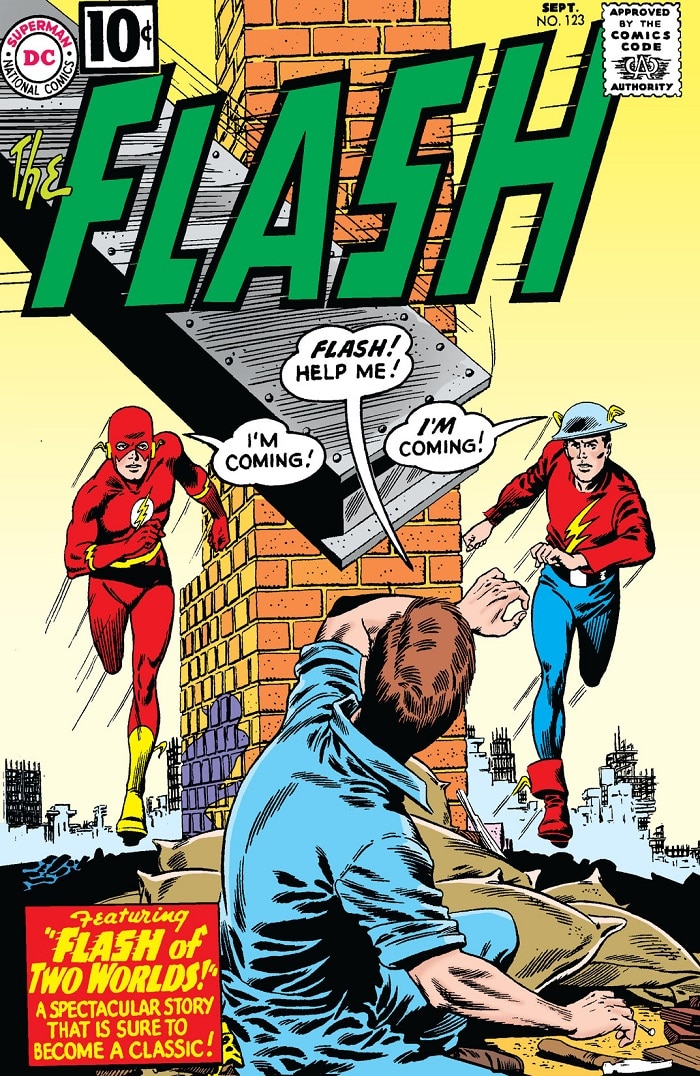
Flash of Two Worlds
Barry Allen debuted in 1956’s Showcase #4 as the second hero to bear the title of the Flash. What happened to the first one? From Barry’s perspective, he never existed. Not as a real person, anyway.
When Barry gains super speed reminiscent of a character from his own favorite comic book, Flash Comics, Barry adopts the name and identity of his hero. In doing so, he establishes that, in Barry’s world, all the Golden Age adventures of Jay Garrick, the original Flash, were merely the same fictional stories that we read in our own world. This was the first marked character reinvention of DC’s “Silver Age,” taking concepts like Green Lantern, Hawkman and the Atom from the 1940s and reinventing them for a new era of readers. It was the first true divide in comic book continuity, clearing the decks of the Justice Society of the past for a more modern superhero universe.
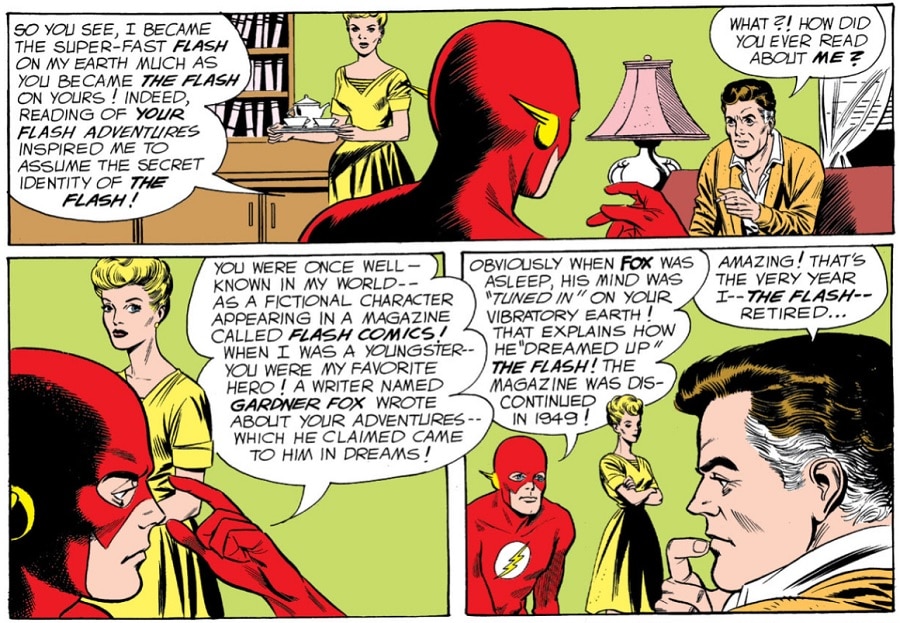
Five years after Barry’s debut, Gardner Fox, Carmine Infantino and Julius Schwartz told a new story of how the heroes of the past may not be as fictive as the Silver Age protagonists believed them to be. In The Flash #123, “Flash of Two Worlds,” Barry accidentally transports himself to another world while vibrating at a different frequency. On this alternate Earth, Jay Garrick, Alan Scott and the other comic book heroes he read as a kid were still quite real—their stories leaking to Barry’s world through visions experienced by comic book writers who transcribed them as stories. Barry Allen makes first contact here with an established superhero universe, launching the notion that every version of DC continuity, no matter how thoroughly rebooted, will always continue to exist somewhere in the vast and infinite Multiverse of Earths. Maybe a little selfishly, Barry dubbed his own world “Earth One,” and the older one “Earth Two.”
This encounter would set up many adventures with the Silver Age Justice League and the Golden Age Justice Society, leading to the discovery of many more Earths—like an Earth where the heroes of the Justice League are evil (“Earth Three”); an Earth where the Axis powers won World War II (“Earth X”); an Earth where no superheroes ever existed at all (“Earth Prime”). As Barry opened the door to the Multiverse, so did the opportunity for reality-bending stories presenting new status quos where anything was possible.
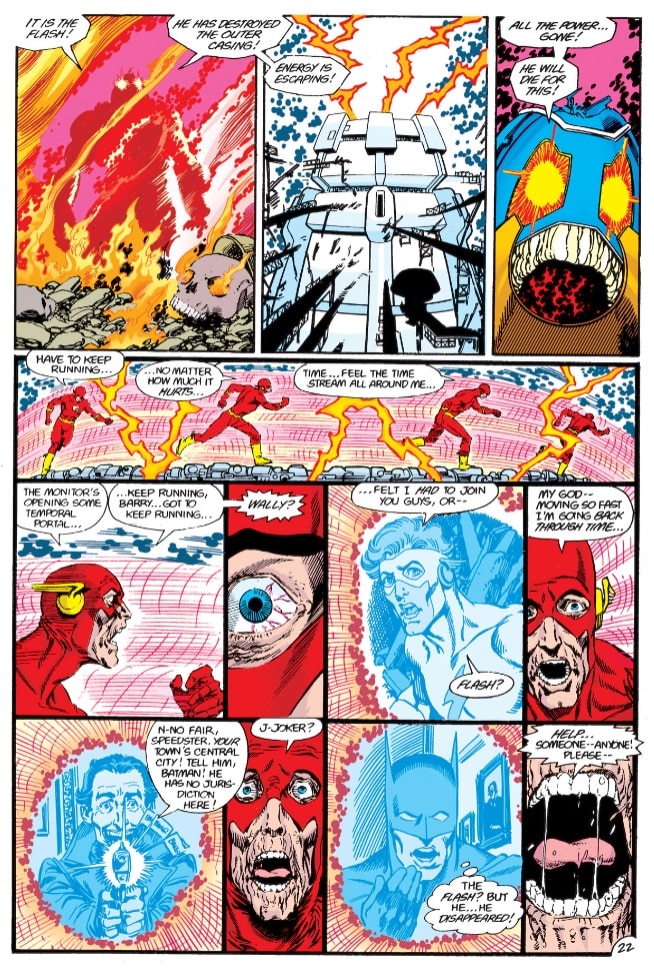
Crisis on Infinite Earths
That changed, for a time, with 1985’s Crisis on Infinite Earths. When DC decided that it was time to retire the Multiverse concept for a while to focus on developing stories on one established New Earth, a world-nullifying being of terrible power called the Anti-Monitor arose to destroy every universe that’s ever existed. To protect reality itself, Barry Allen makes the ultimate sacrifice in a losing battle to preserve the Multiverse he discovered, but it’s one which buys Earth’s other heroes the time to organize, allowing a New Earth to arise in its place. That’s how essential, how synonymous, Barry Allen had become with the Multiverse at that point: as the Multiverse perished, so too, by necessity, did Barry.
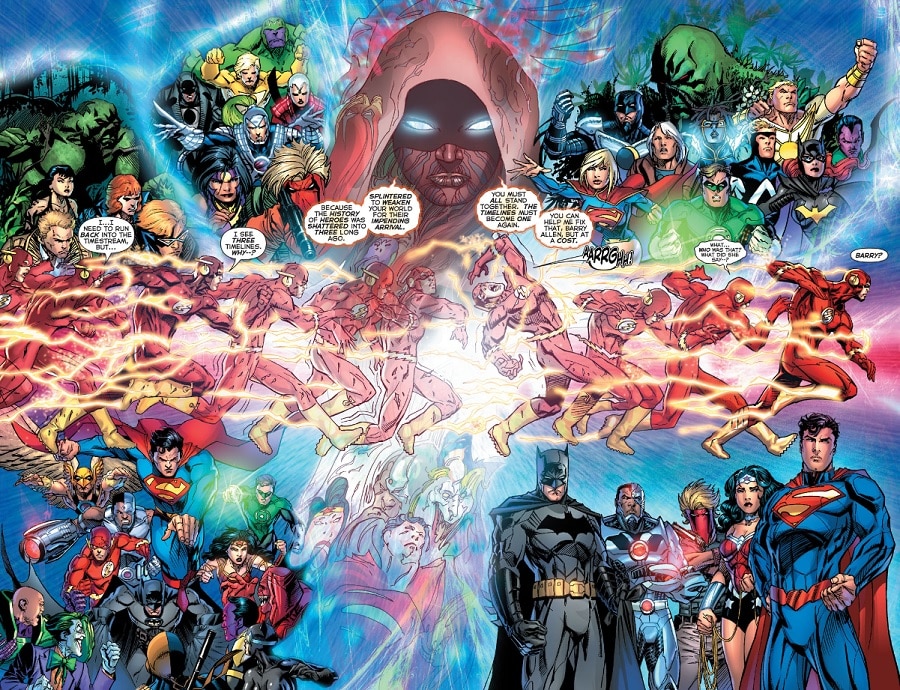
Flashpoint
Over twenty years later, Barry Allen returned in 2008’s Final Crisis event—revealed to have been running through the Speed Force this whole time, a concept which itself was only introduced during his absence. Barry spent a couple years sharing the Flash mantle with his successor and former sidekick, Wally West, until the mutable nature of reality came calling again: this time with the 2011 Flashpoint event, where a time travel incident changes everything Barry knows about his timeline. While Barry helps undo (or, at least, escape) this darker Flashpoint universe, what ensues is a new world all the more unfamiliar: the relaunched continuity of the New 52, incorporating elements from multiple Earths into a single timeline just as the Post-Crisis New Earth had consolidated the comic book continuities that came before it.
Once again, Barry Allen was shepherding a new reality for the DC Universe which would dictate its terms for years to come.
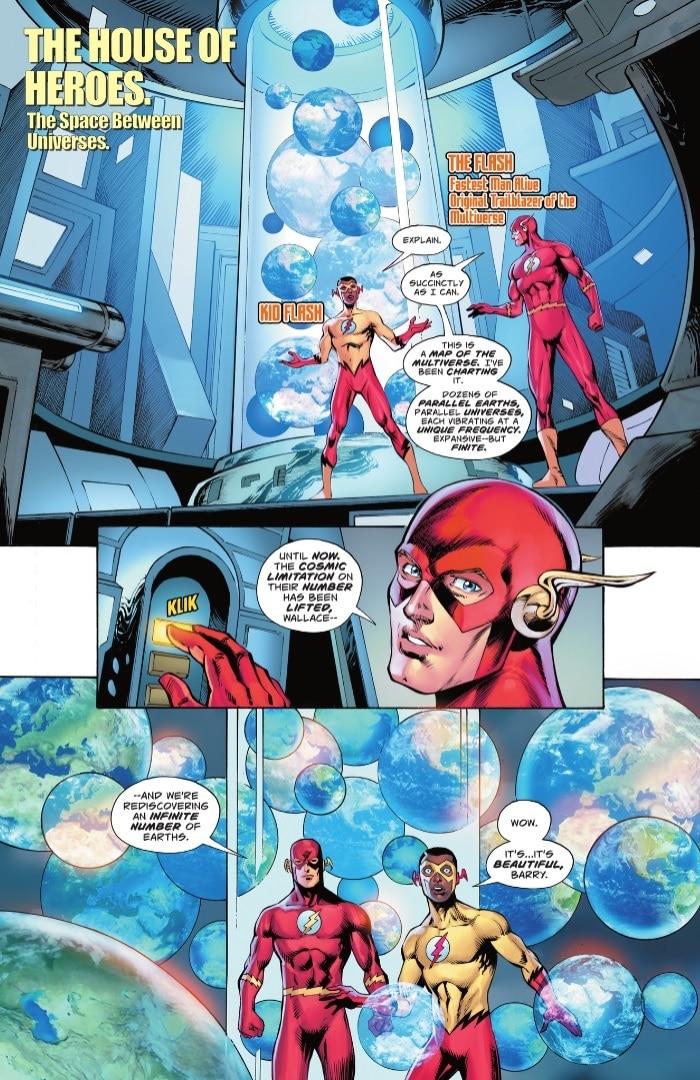
Dark Crisis: Big Bang
These days, Wally West is back to being the main Flash in the comics, with his own themes of family and legacy to explore. But in the recent Dark Crisis, Barry Allen truly embraced his role as the preeminent explorer of the Multiverse frontier. In Dark Crisis: Big Bang, Barry sets out to chart a newly reorganized Multiverse larger than it’s ever been before, bringing heroes from across the vast spectrum of alternate universes together for a rematch against the Anti-Monitor before setting out to explore those further frontiers.
It’s through Barry’s eyes that the concept of the Multiverse began, and it’s through Barry that we’ll probably always see it expand. So, who better to take DC films into the Multiverse than Barry Allen?
The Flash, directed by Andy Muschietti and starring Ezra Miller as Barry Allen, is in theaters June 16th. Visit our official Flash hub for more news, interviews and videos about the Flash!
Alex Jaffe is the author of our monthly "Ask the Question" column and writes about TV, movies, comics and superhero history for DC.com. Follow him on Twitter at @AlexJaffe and find him in the DC Community as HubCityQuestion.
NOTE: The views and opinions expressed in this column are solely those of Alex Jaffe and do not necessarily reflect those of DC Entertainment or Warner Bros., nor should they be read as confirmation or denial of future DC plans.






